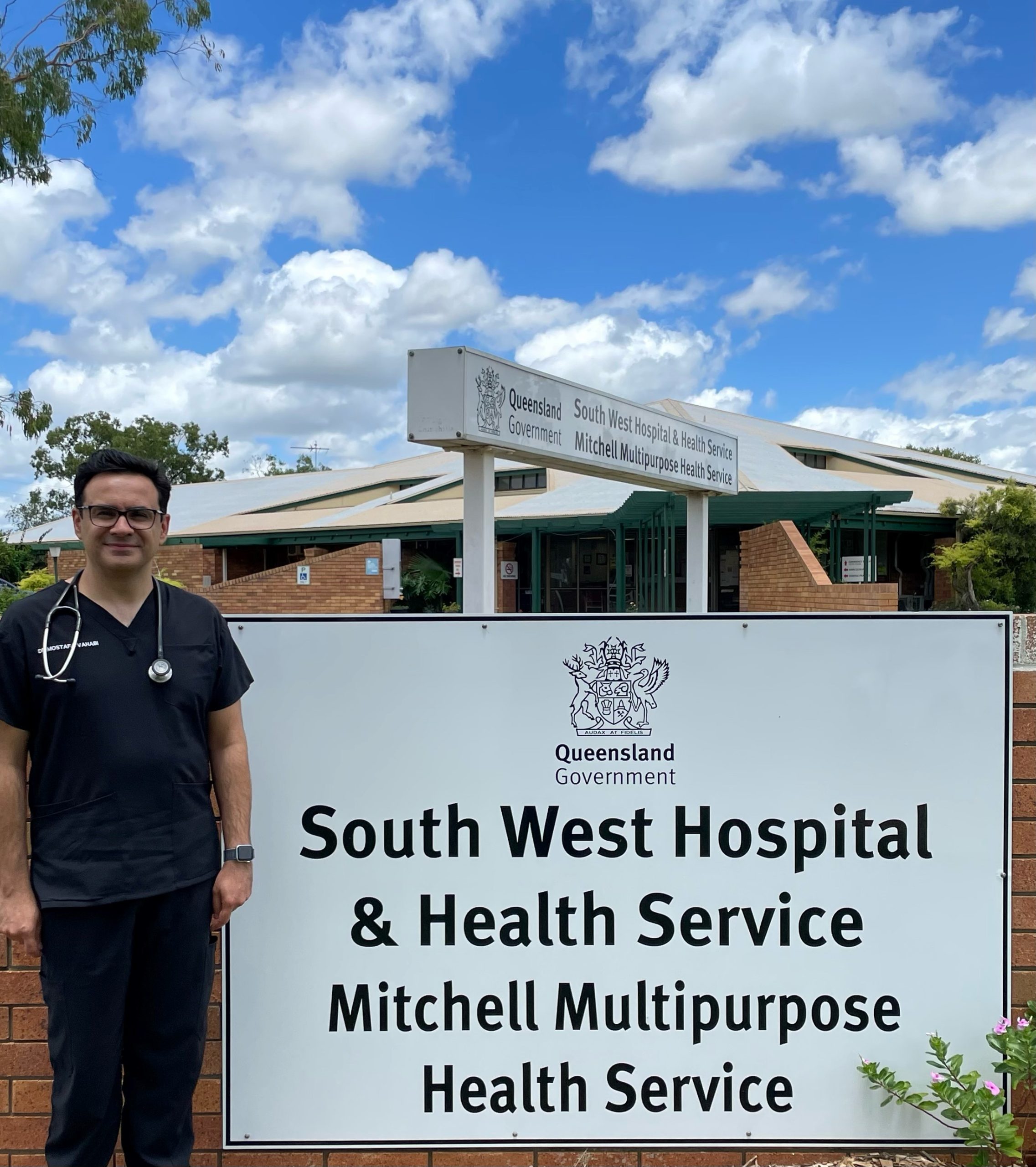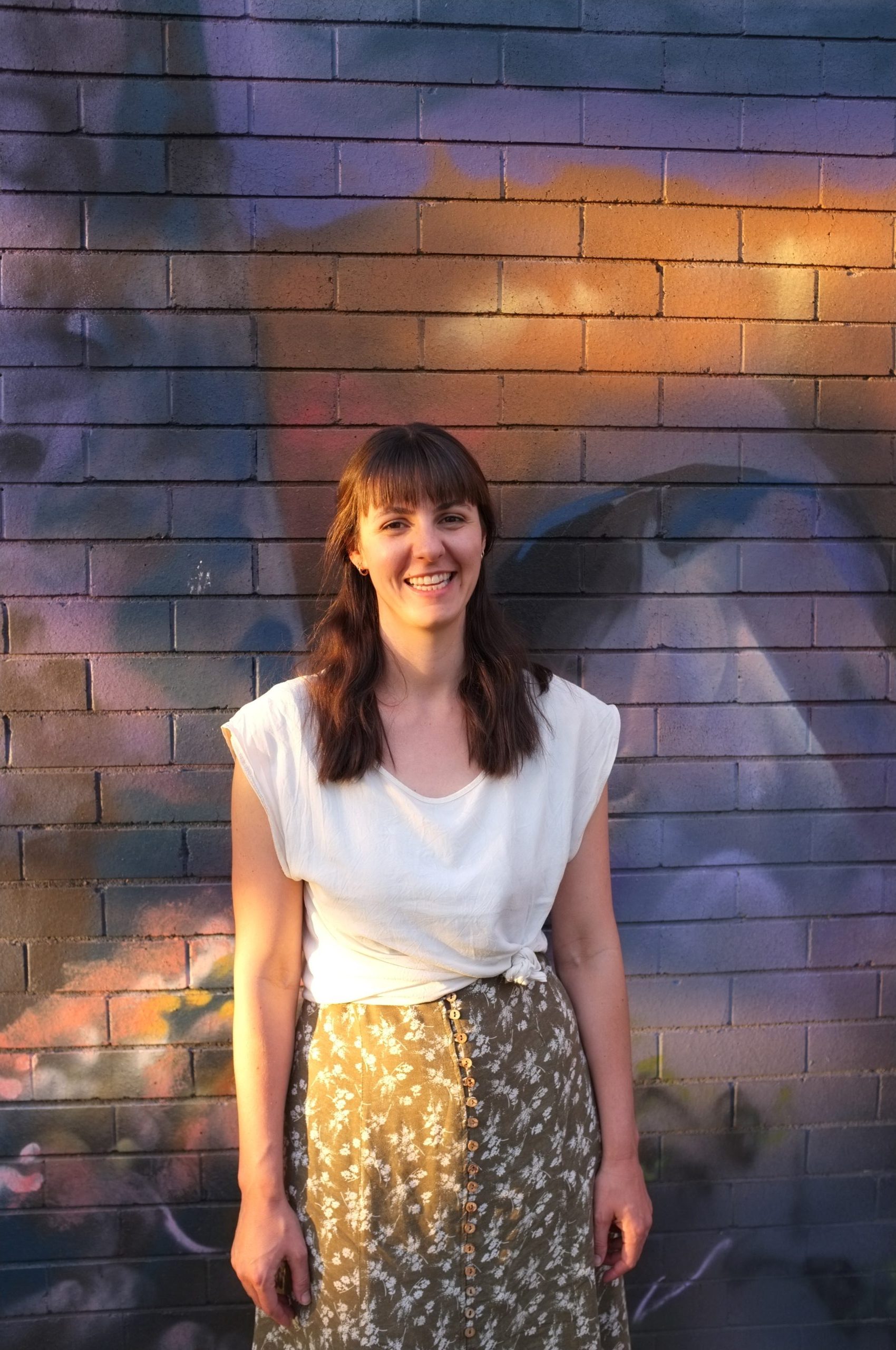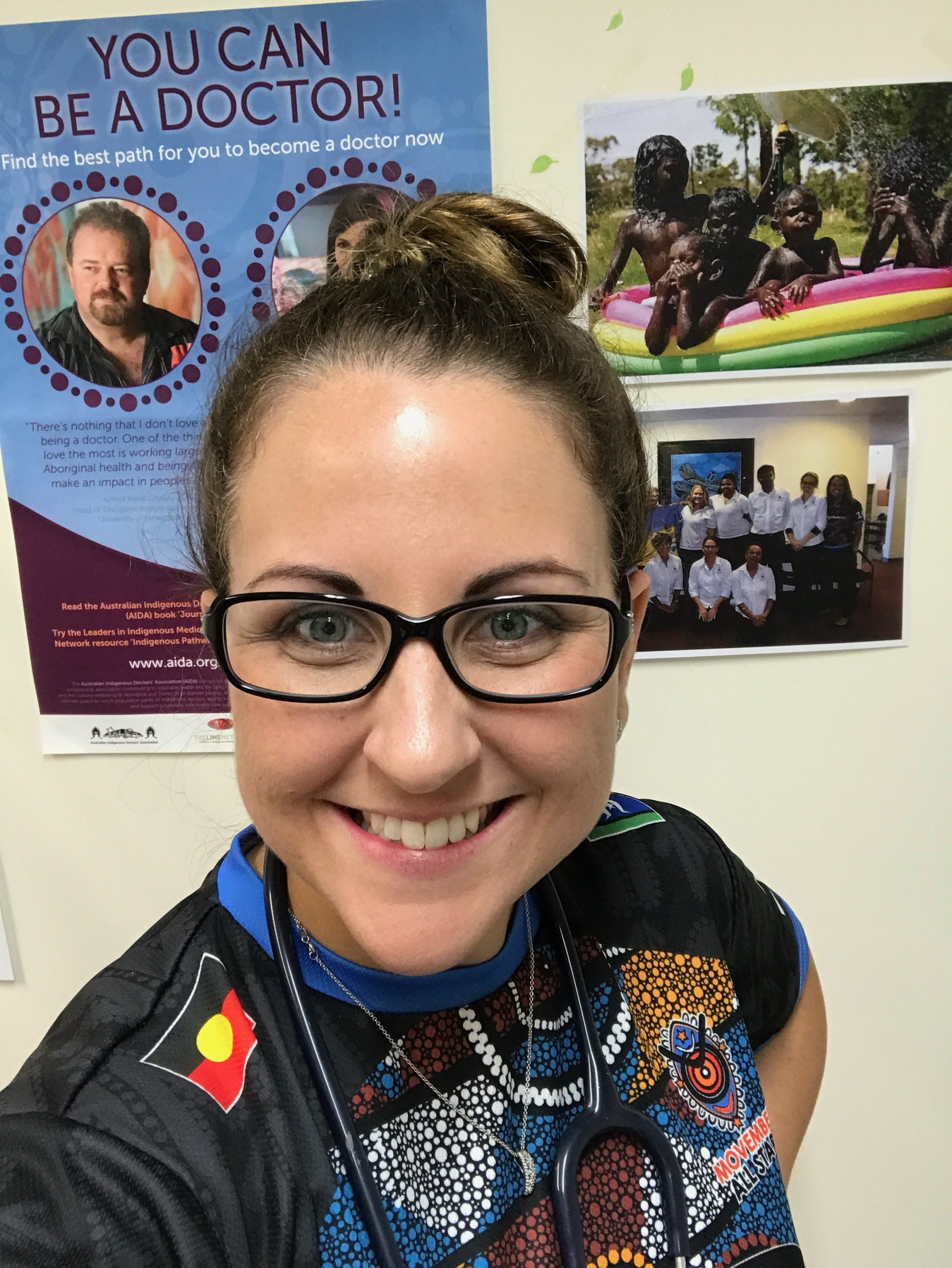QRGP intern Dr Jacob Page is a descendent of the Pitjantjatjara and Kokotha people in South Australia. Jacob’s journey to medicine wasn’t a straight path, but with the love and support of his wife, he is now thriving as a junior doctor at Ipswich Hospital.
Jacob was supported through the QRGP Aboriginal and Torres Strait Islander Intern Allocation Initiative and shares his journey to medicine below and what motivates him to improve health outcomes for disadvantaged communities.
My heritage
My Aboriginal heritage comes from my mother’s side. Our family history traces back to my great, great grandmother, who survived a massacre as a young girl. She went on to live and work as a domestic servant for a pastoralist family. This led to a loss of culture being passed down through the generations. I continue to learn bits of my culture through my nana, but unfortunately, I know little about the mobs I descend from. The story of my family has created a strong sense of empathy in me as a person and has shaped the way I interact with patients; I build strong rapport which helps improve health outcomes.
My journey to medicine
My path to university wasn’t an easy one, I left school at fifteen years old and worked in a bicycle shop. Due to my social circumstances the importance of a good education wasn’t fostered in my family, which led to me to jump between odd jobs for the next few years. I dreamt of studying exercise science and/or physiotherapy as I had a strong interest in exercise, sport and understanding different types of sporting injuries. When I was seventeen I enrolled in a Certificate III and IV in Fitness at TAFE, as a bridging course. But it was a struggle, not with content, but with navigating education without any major support from my family. I had self-doubts, ‘am I smart enough’, ‘am I capable of making it into a university degree in the future’. These self-doubts led me to leave TAFE (before I could finish my Certificate IV in fitness) to pursue an apprenticeship as a metal fabricator, where I worked in a factory for the next six to seven years.
The best thing about TAFE was meeting my girlfriend (who is now my wife). She was also studying fitness and went onto complete a degree in dietetics at university. She became my motivator and provided me with lots of encouragement to aim to achieve more. I guess I can say she saw something in me that I didn’t see in myself at the time. When I was close to finishing my apprenticeship, my wife encouraged me to apply for university and my apprenticeship and Certificate III in Fitness gave me entry into the Bachelor of Sports Development. When my GPA was high enough, I transferred to a Bachelor of Exercise Science. After completing some pharmacology and pathophysiology-based subjects, my love for learning about health and disease grew and I knew I wanted to pursue medicine. With lots of encouragement and support from my wife and peers at university, I managed to graduate with a Bachelor of Exercise Science and Doctor of Medicine.
I have always been drawn to general practice; I love the idea of practising across a wide range of areas. Learning a little bit about a lot of things excites me more than learning everything in one field. In saying that, I do love the idea of completing an advanced skill to serve the community I will eventually work in, as it increases the access to appropriate health resources for a population of people who need it the most.
My mentors
There have been many people along my journey who have taken the time to mentor me. In medical school I chose to do my final year elective at Kambu Health, an Aboriginal Medical Service in Ipswich. Dr Marjad Page (QRGP Fellow) was a huge support to me during this time. I learned a lot about the complex issues our people face in health, but he also provided some amazing insight, advice, and guidance on how to navigate life as a First Nations man, both personally and professionally as a doctor.
Another person who had a major impact is Dr Shannon Springer. Shannon is the Adjunct Professor of the First Peoples Health Stream of the medical program at Griffith University. He helped me and other First Nations medical students with any issues or challenges we faced during medical school. He provided us with countless amounts of both personal and professional advice as we started our journey as junior doctors.
Being a member of Australian Indigenous Doctors’ Association (AIDA) has also been very valuable, I was fortunate enough to attend their annual conference last year in Hobart. It was an amazing opportunity to learn valuable skills through the workshops they held, I met lots of different specialists and learned more about what to expect and what is needed to apply for different training programs. I spent some time chatting with the QRGP team at their sponsor booth, asking plenty of questions about what to expect in the coming years and received some valuable tips and advice.
My driving forces
My wife and I have just had a baby girl and she is my motivation to get up every morning and continue doing what I do (the fact I’m on the morning nappy change shift could be a contributing factor). I want to break the cycles of disadvantage in my family.
My passion to help people better their health, particularly the populations that need it the most – rural populations and First Nations people, is what drives me to be a better doctor. I love the life-long learning and challenges I will need to overcome, and I think this is a big part of why I chose a career in medicine.
NAIDOC 2024
This year’s NAIDOC theme, ‘Keep the Fire Burning! Blak, Loud and Proud’, resonates with me a great deal. It reminds me of the importance to keep the fire burning, passing down Indigenous culture throughout the generations. It motivates me to learn more, acknowledge and immerse myself in my own culture, so I can pass it on to my daughter.
I am proud of what I have achieved in my life so far, despite the challenging circumstances I found myself in as a younger person. It highlights the importance in acknowledging the success of Indigenous people and how we need to feel deserving of our achievements and our spot in the world.
My future
I’m extremely excited for my future as a Rural Generalist. I have not decided on my advanced skill just yet, but I have really enjoyed my time in emergency medicine both as an intern and student. I would love to work at some of the rural hospitals throughout the West Moreton district in the future, but am totally open at this point. I think I will have a better idea further along in my junior doctor years.
My advice for First Nations students considering medicine is GO FOR IT! It is such a rewarding feeling not only learning and developing your own skills and knowledge but knowing you will have a career dedicated to helping others. Surround yourself with people with similar goals and aspirations. First Nations people have overcome a lot of adversities over the years, our perseverance, resilience as well as our holistic view of health, are all great qualities for a career in medicine. You can achieve whatever you want in life, there is always a pathway to get you there.
Dr Jacob Page | QRGP trainee







